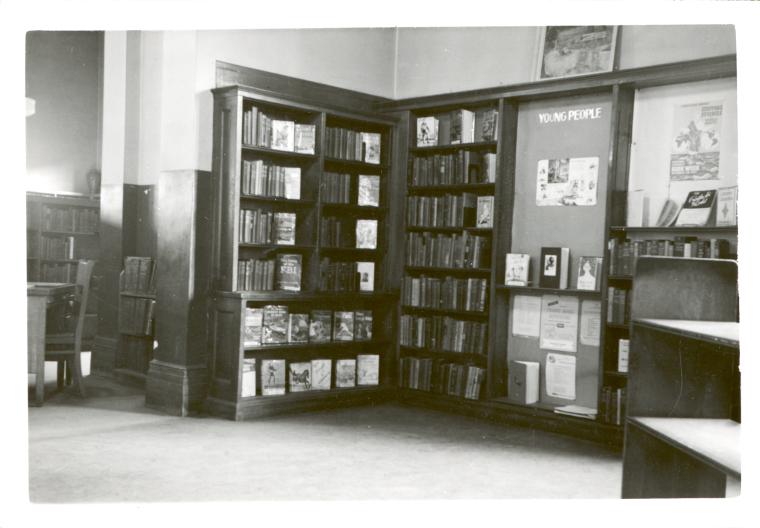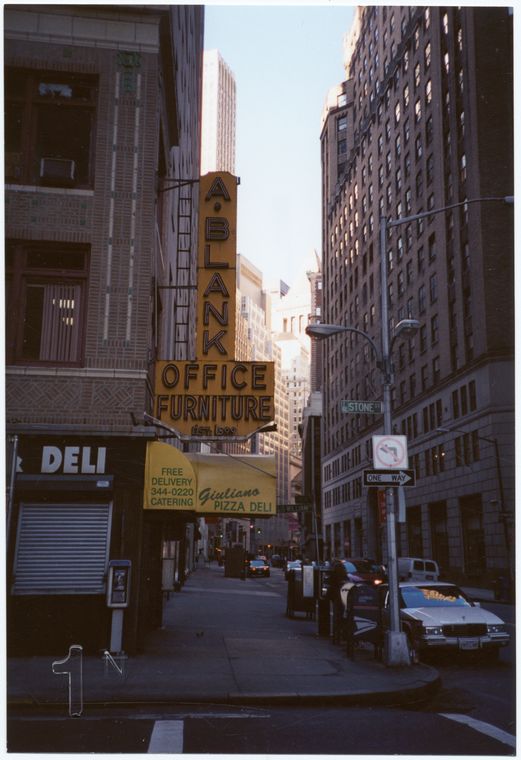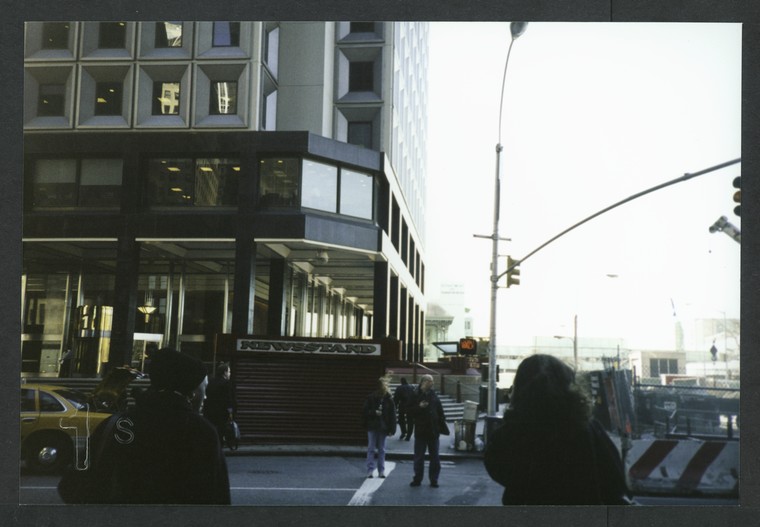Biblio File
The Art of Browsing
I had not seen my friends S. or F. for quite some time.
We were standing outside the Stephen A. Schwarzman Building on 5th Avenue; traffic buzzed and halted around us. Sitting on the steps like the boys and girls in Rome who hang around the Spanish Steps, smoke cigarettes and behave like the images they see on television who are modelled after them, I think to myself, we are encumbered in one city by Ghostbusters, in fiction parading out before us, haunted in another at the Philadelphia Museum of Art. Citizens take heed of your cities that hallmark events that never happened, I think. I see a stray dog wander by; perhaps it had found some undiscovered corner of Bryant Park to sleep in?

S. will go on and on if you let her. She asks me, Do I name drop? One could tell all the downtown and uptown bourgeois to stop namedropping celebrities they know, shameless, are they ever called on it? Perhaps like George Bernard Shaw said of horseracing, no I am not quite sure why people might think it fascinating one starlet or actress is more or less glamorous than another? As if all reality has a spectrum disorder now I think, we are in the 000s, lists of lists, Guinness Book of World Records, how-to-be-a-librarians. F. chimes in, we were running, and we still are—in the late '90s and the early 2000s the Internet busted. Humanities majors found no jobs, and they became librarians.
Yes, I think. The 100s, philosophy, spirituality. Are there gurus for the dysphoria my friends feel today? We pass through one section, spy at the people on the computers: chess, Facebook, resume, resume, reading the news, resume, email, resume. The rich get richer, the poor can wait for their computer appointments. That was a generation that lost itself from itself. Now they cannot stop burying and enshrining something called a hipster. Ressentiment.
The 300s, politics, political science. We hear a jet overhead. F. excuses himself to use the restrooms. S. goes to check the catalog.
Browsing is the art of raising the non-sequitur to the position of narrative. The case being that we only tell ourselves stories, and the anomalies of these stories always inject the irony or tragedy there; people are left to pick among the rubble of the remaining plasticity. Of course, we are addicted to telling ourselves stories, but know these are just stories: in effect, we have floating image after image now—not so much that the world embraced the Internet, but that the Internet is now our world, our consciousness. S. whispers to me, apropos of nothing, "The spirit is a bone."
Table, desk, chair. Laptop, lamp, window. Person, book, book, person. Poetry, health, the 700s and stadiums of fans adorning each shelf.
Wiseblood. “I know things I ain't never learned.” And now today, I think, I learn things I don’t know. People get carried off like debris in life if you’re not careful. Hold everything dear.
Huston directed the film version. Moral isolation can warp the vocabulary of love into the hideous and beautiful together. The warp and weft though can be found in the latter day heart’s desire—now externalized and fragmented. A monster you’ve created but it is our beautiful monster now.
We are an image from the future. F. tells me, the stakes are very high today. A Chinese curse says, May you live in interesting times. But they are always interesting times. If you tell yourself so. Or at least recognizing it. A higher-order thought. And Sartre said, perhaps, by just saying you are dialectical then you are being dialectical.
Eleanor Roosevelt biography. Baby block books. The Medea Hypothesis. War. Peace. The big things. Eric Satie and small, absurd things: Poincare, cooking, how does one sleep? Africa.
The contingency in every chance encounter with love and information, which are tantamount to the same thing, because knowledge is indexed underneath desire, not scholarship, the contingency appears exactly nowhere in networks with walled gardens and pay-as-you-go pipelines. S. tells me all this, first in Spanish, then in Russian, and third in Arabic. People think you ask for the book, then find it, but the truth is the other way around.
Henry Adams thought he could write a history of humanity tethered to the second law of thermodynamics. He was wrong. While we still undergo the slow explosion of history and physics still remains somewhat legal, there is a lot in between to glance at. A thousand shattered mirrors: the cow in the tornado, Walter Benjamin at the Orange Julius, the Dreamtime and people who are no one in particular and the things they love. Random things, in between, and how they happen.
We are done browsing. We checked out some items. I thought I would read Franzen’s new Freedom, to keep up with all those Brooklyn literati I think (I guess), F. found a title on peak oil and long, sustained emergencies. S. will not show me what book she selected, although I suspect its Dewey number. She says goodbye, says her friend Chris said, “The first image he told me about was of three children on a road in Iceland, in 1965. He said that for him it was the image of happiness and also that he had tried several times to link it to other images, but it never worked. He wrote me: one day I’ll have to put it all alone at the beginning of a film with a long piece of black leader; if they don’t see happiness in the picture, at least they’ll see the black.”
We say our goodbyes very slowly; everyone on 5th Avenue hurries on their way to nowhere.
I’m on the subway now. A man in a suit listens to his iPod and his flipping through an e-reader. What is on the news today? Some disaster and we will all feel some heavy generic dread? Next to him is very visibly a person without a home, next to him invisibly a woman who has been unemployed for several months. A bankrupt student, no way to pay his loans is sitting across from me, staring at the ceiling, curiously smiling. Wolves, Iceland, meat, flowers, noodles, stars, Sagan, volcanos, barricades and category theory, one after the other I think: there are dangers in reading I think and not all the reading to be done is in books, not all the browsing is done in the stacks, not all things that are lost are the things that are eventually found.
The black space strobes in and out of the car as we all move to the next station, never to speak to one another, floating amidst wreckage and the multiplicities of miscellany.
Read E-Books with SimplyE
 With your library card, it's easier than ever to choose from more than 300,000 e-books on SimplyE, The New York Public Library's free e-reader app. Gain access to digital resources for all ages, including e-books, audiobooks, databases, and more.
With your library card, it's easier than ever to choose from more than 300,000 e-books on SimplyE, The New York Public Library's free e-reader app. Gain access to digital resources for all ages, including e-books, audiobooks, databases, and more.
If you don’t have an NYPL library card, New York State residents can apply for a digital card online or through SimplyE (available on the App Store or Google Play).
Need more help? Read our guide to using SimplyE.

